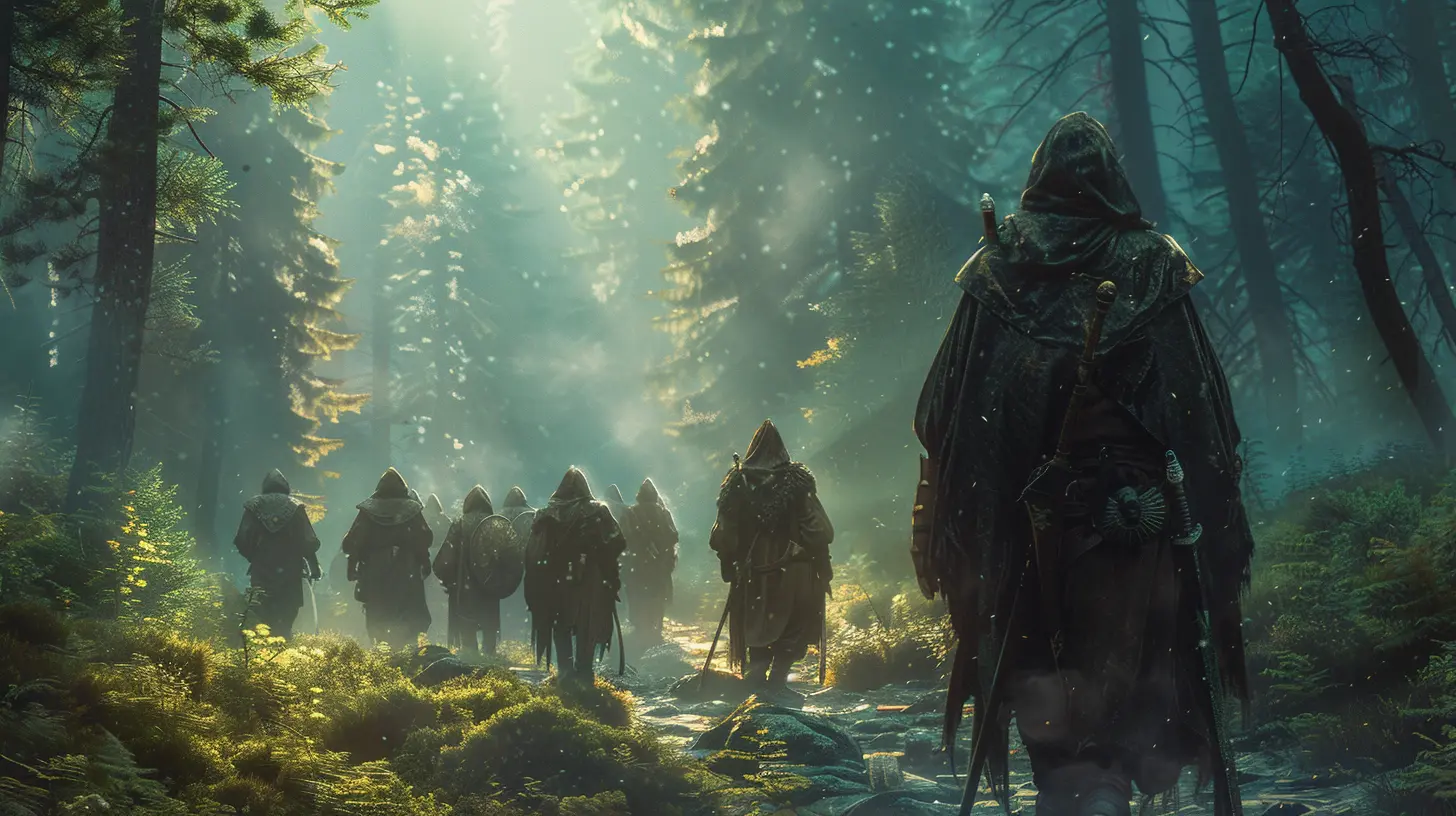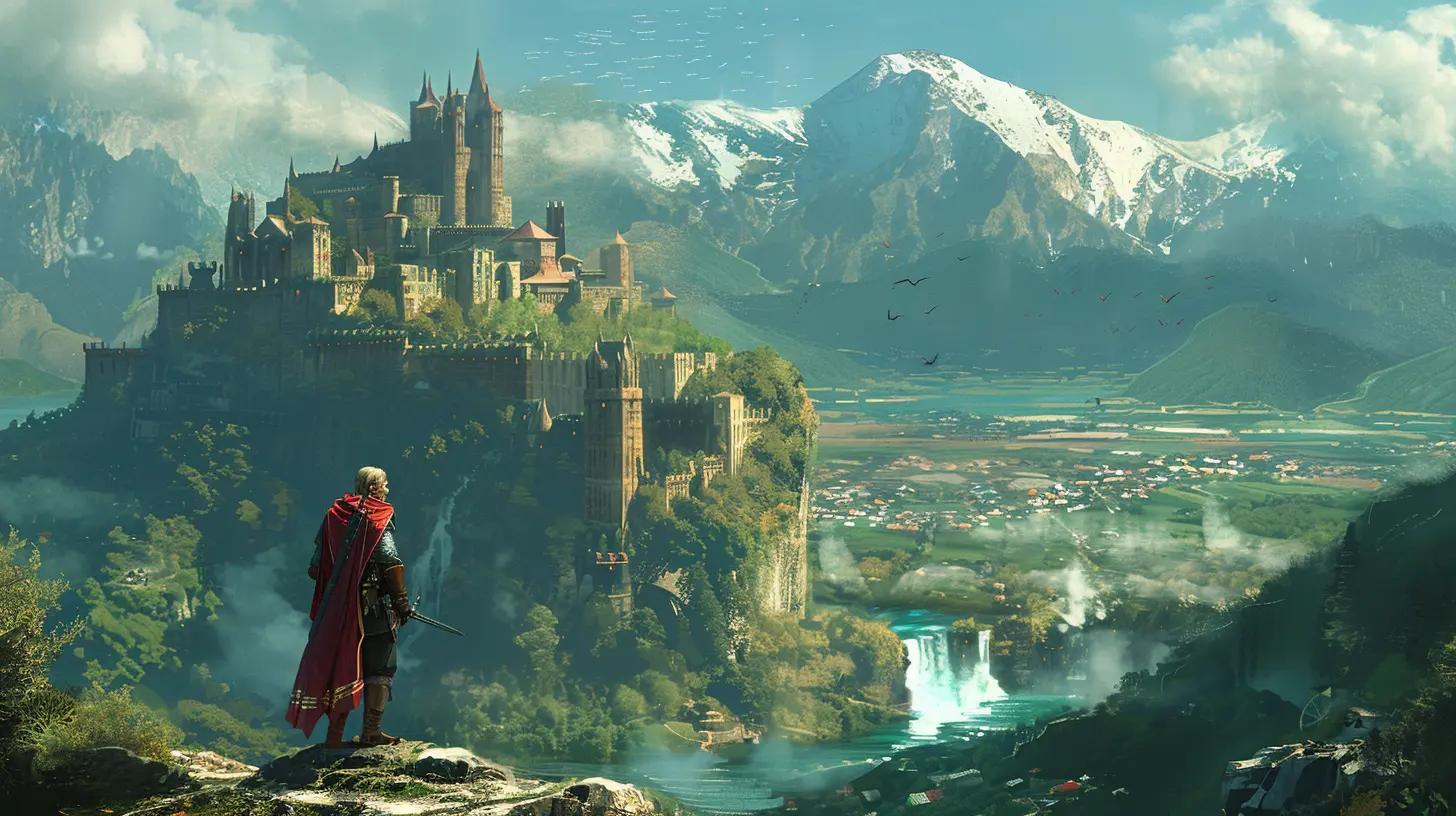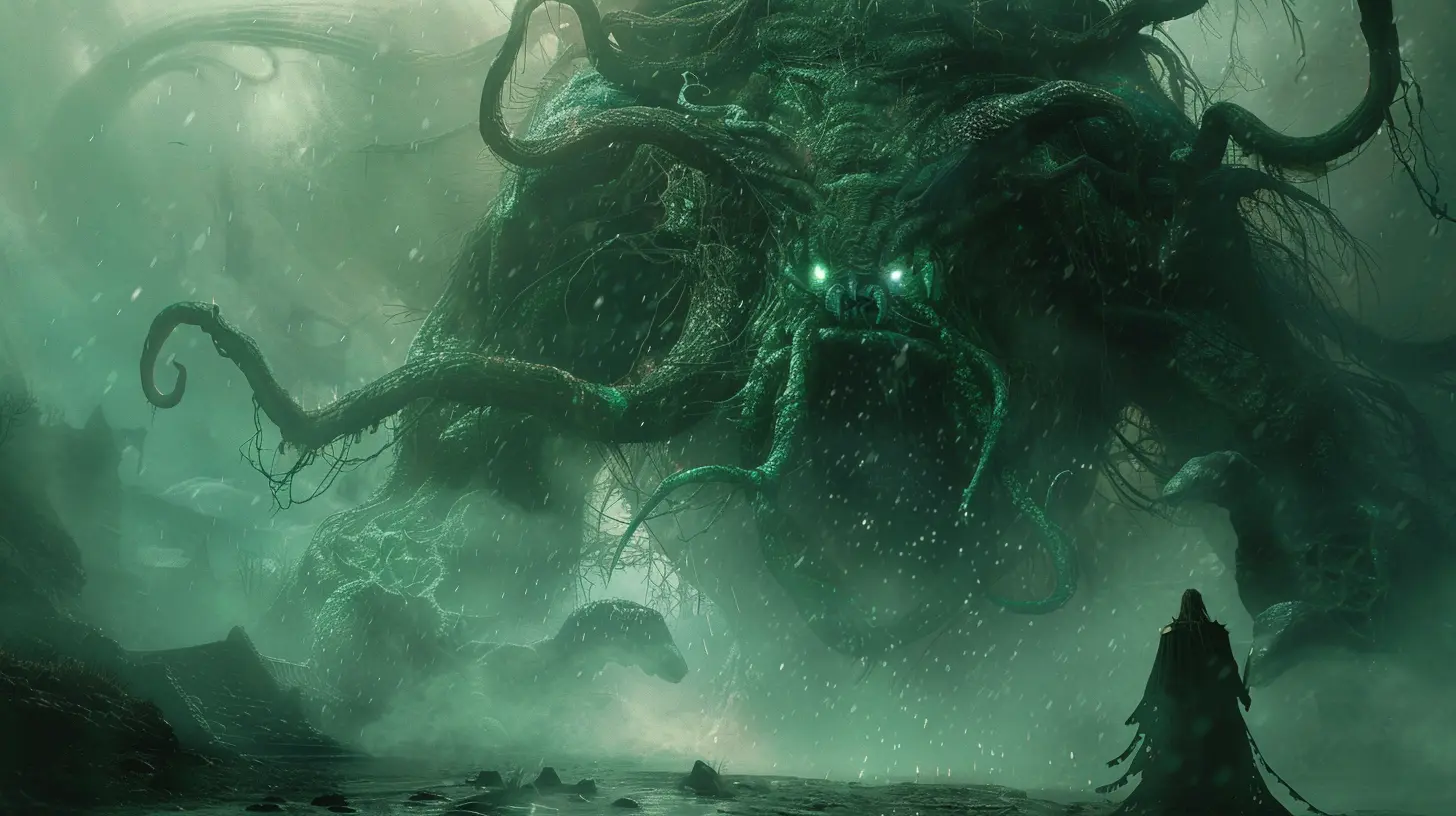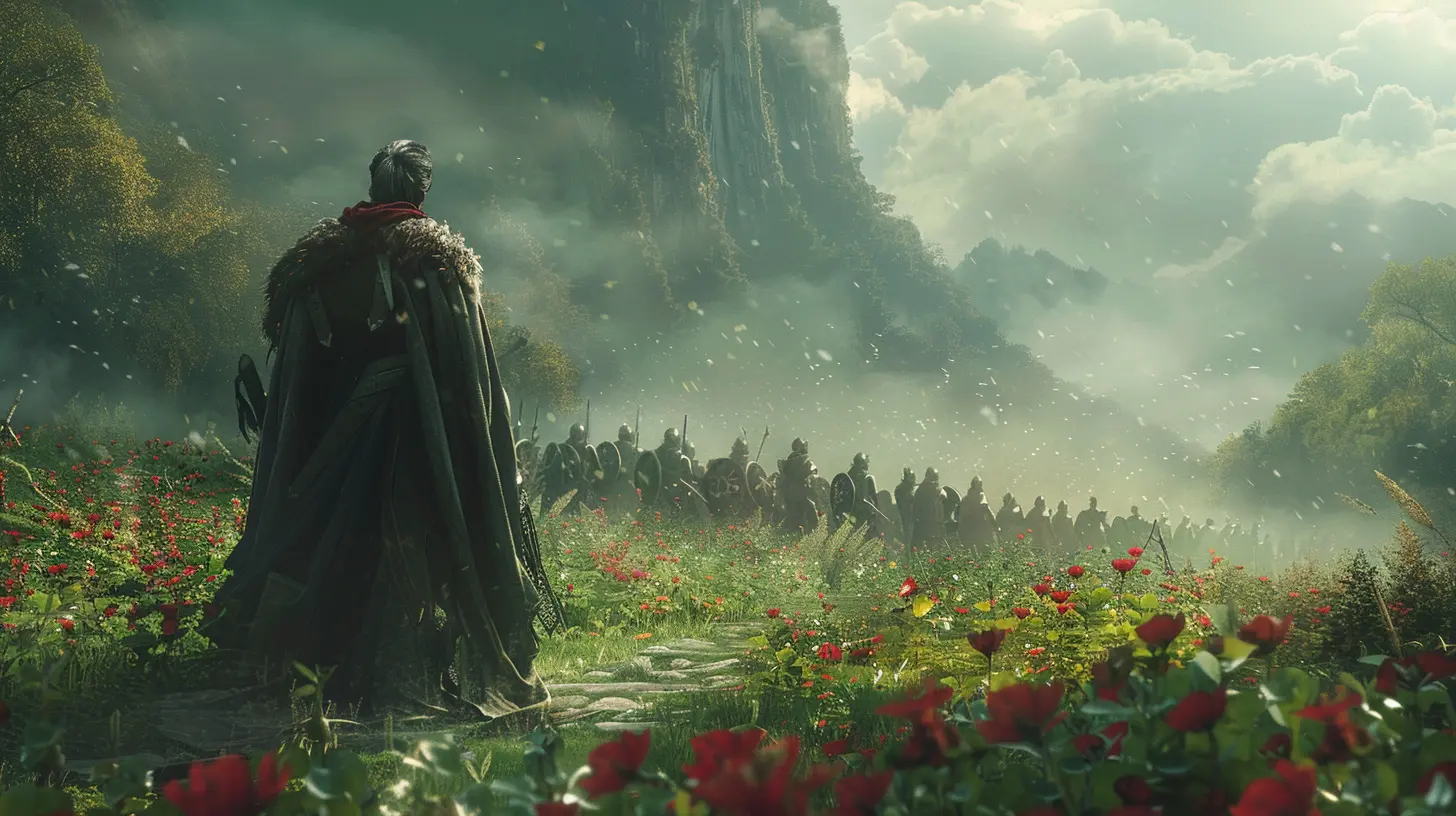Why Game Lore Matters More Than You Think
19 September 2025
Let’s be real—most of us don’t pick up a game and immediately dive into the backstory. We’re too busy smashing enemies, leveling up, or building that perfect loadout. But here’s the twist: behind every epic battle, forgotten dungeon, or NPC monologue lies something deeply powerful—lore. Game lore isn’t just an optional side dish you can skip if you’re in a hurry. It’s the secret sauce, the beating heart, the hidden soul of the entire gaming experience.
So, grab your controller (or mouse), sit back, and let’s talk about why game lore matters way more than you think. Because once you understand what’s really going on beneath the surface, you might never look at your favorite game the same way again.
What Is Game Lore, Really?
Alright, let’s break it down. Game lore is the collection of stories, myths, legends, histories, and world-building elements that live inside a game’s universe. It includes:- Character backstories
- The history of the game world
- Ancient prophecies
- Political power struggles
- Cultural traditions
- Religious beliefs
- Factions, guilds, and rivalries
In short—it's everything that gives a game world depth and context.
Think of lore as the glue that holds the gameplay together. It's what turns a basic "kill-the-dragon" quest into a meaningful journey of vengeance, redemption, or destiny.
Lore Turns Games Into Worlds
Ever wonder why games like The Elder Scrolls, Dark Souls, or Mass Effect feel so immersive?It’s simple: they’ve got world-building on steroids.
You’re not just fighting enemies—you’re stepping into a universe that existed long before you loaded your save file. Every ruined castle, every broken sword, and every cryptic NPC line is a breadcrumb leading you to understand the bigger picture.
And the best part? You don’t need a cutscene to tell you the lore. It’s in the environmental storytelling. It’s in the item descriptions. It’s in that creepy statue you almost ignored.
These worlds feel alive because they have history. And you? You’re not just a player. You’re part of the ongoing story.
Emotional Investment Hits Harder With Lore
Let’s talk feels.Imagine you’ve played for hours, gotten attached to a character, and—bam!—they die. That always sucks. But if you know their full backstory—how they lost their family, how they trained for revenge, or how they’re fighting inner demons—it hits like a truck, right?
Lore makes you care.
It gives weight to your choices, power to your allies, and complexity to your enemies.
Games like The Last of Us and God of War don’t just hit because of their graphics or combat. They hit because the characters are deeply rooted in lore that makes their actions—yep, even the bad ones—make sense.
Lore = Endless Content Potential
Here’s where it gets juicy for the devs and content creators: lore breathes longevity into games.With a strong lore foundation, devs can release expansions, prequels, sequels, spin-offs, and even books or TV shows (looking at you, Witcher).
Players will keep coming back—not for better graphics (okay, maybe that too), but because they’re hooked on the world, the mystery, and what happens next.
Think about World of Warcraft. It’s been thriving for two decades. Why? The lore is DEEP. Like, drown-in-it levels of deep. And players still argue over who the real villain is or what’s going on with that one prophecy from 12 expansions ago.
Narrative Freedom and Player Agency
Here’s where lore goes next level.Games aren’t just about watching a story unfold—they’re about living it. When lore is woven into your decisions, you start shaping the world.
Take The Witcher 3, for example. Every choice feels loaded because it’s backed by politics, culture, and consequences rooted in the world’s history. You’re not making decisions in a vacuum. You’re playing within a living, breathing storyworld.
When done right, lore empowers players to become storytellers in their own right. That’s not just cool—it’s revolutionary.
Community Engagement and Fan Theories
What happens when the lore is rich but not spoon-fed?The fanbase explodes with theories, debates, and detective work.
Games like Five Nights at Freddy’s and Dark Souls thrive because players piece together the story themselves. YouTube channels, Reddit threads, and blogs blow up with analysis and speculation.
Suddenly, the game isn’t just something you play—it’s something you live, breathe, and obsess over.
The lore becomes a puzzle. And players love puzzles.
The Power of Mystery
Let’s be honest: not knowing everything is part of the charm.Game lore thrives on mystery. The unexplained keeps us curious—and curiosity is the fuel that drives deep engagement.
Why did that ancient city fall? Who really wrote that scroll? What’s the true nature of The Void?
Games like Bloodborne and Hollow Knight never dump the full story on you. They give you fragments—just enough to keep your imagination running wild.
And that’s where magic happens. When games trust players to connect the dots, they create not just fans, but lore archaeologists.
Lore Drives Replay Value
Ever finished a game and jumped right back in—not for more action but to uncover what you missed?That’s lore at work.
Hidden texts, alternate endings, secret characters—all of it becomes way more compelling when you know there’s a greater context to uncover.
Lore transforms a one-time playthrough into a layered experience. Each time you go back, you discover new details that were there all along.
It’s like rewatching Inception. Every time, you catch something new.
Why Some Games Struggle Without It
Now here’s the flip side.Some games focus so hard on mechanics that they forget to build a soul. Sure, the combat might be fluid, the graphics might shine, and the gameplay might be tight. But without lore, it all feels… empty.
There’s no “why,” just “what.”
And gamers know the difference. A decent game with rich lore can outshine a technically superior one that lacks it. Story sticks. Emotions linger. Worlds stay with us.
Without lore, a game might be fun—but it won’t be unforgettable.
Great Lore Doesn’t Mean Overloading Players
Now before you think every game needs a 500-page tome: hold up.Great lore isn’t about dumping lore-books at your feet. It’s about subtlety, layering, and context.
Let players discover it at their own pace. Let them stumble upon secrets. Let them wonder.
That’s the beauty of interactive storytelling—you don’t force the lore, you invite the player into it.
Games like Celeste or Journey prove that even games with minimal text can carry deep emotional and narrative weight. Lore isn’t about volume. It’s about meaning.
The Future of Lore is Bright (and Interactive)
We’re moving into a golden age of storytelling, where games are starting to rival movies and books in narrative depth.From dynamic dialogue trees to procedurally generated history (hello, Dwarf Fortress), the tools for lore-building are more powerful than ever.
AI-driven stories, community-influenced narratives, and evolving game worlds are pushing what lore can be.
And remember: as games evolve, players evolve too. Today’s gamers crave more than just wins—they want stories worth telling.
So, Why Does Game Lore Matter More Than You Think?
Because it:- Makes worlds feel real
- Makes stories feel personal
- Fuels communities
- Sparks imagination
- Adds depth and meaning
- Keeps us coming back for more
Game lore isn’t just for the nerds (although hey, we salute you). It’s for anyone who has ever gotten chills reading a forgotten journal entry, or sat in silence after finishing a game that made them feel something deep.
At the end of the day, games are stories we don’t just watch—we live them.
And lore? Lore is the thread that ties it all together.
So next time you’re about to skip the dialogue or ignore a dusty old book in that dungeon—maybe take a second thought. You never know what hidden gem of world-shaping wonder you’ll find.
Final Thoughts
Whether you’re a lore junkie or someone who usually skips the cutscenes, take this to heart: lore isn’t extra—it’s essential.It’s the reason games become legends. It’s the bridge between player and purpose. And most importantly—it’s what turns a good game into an unforgettable one.
So dive deep, connect the dots, and fall in love with the world beyond the mechanics.
Because game lore? Yeah, it matters more than you think.
all images in this post were generated using AI tools
Category:
Game LoreAuthor:

Luke Baker
Discussion
rate this article
1 comments
Adam Wood
Great article! It’s so true that game lore enriches our experiences, creating deeper emotional connections and immersive worlds. When we invest in the story and characters, it elevates gameplay from mere entertainment to a truly memorable journey. Thanks for highlighting this important aspect of gaming!
September 27, 2025 at 3:45 PM

Luke Baker
Thank you for your thoughtful comment! I completely agree—game lore truly enhances our connection to the experience. I'm glad you enjoyed the article!


